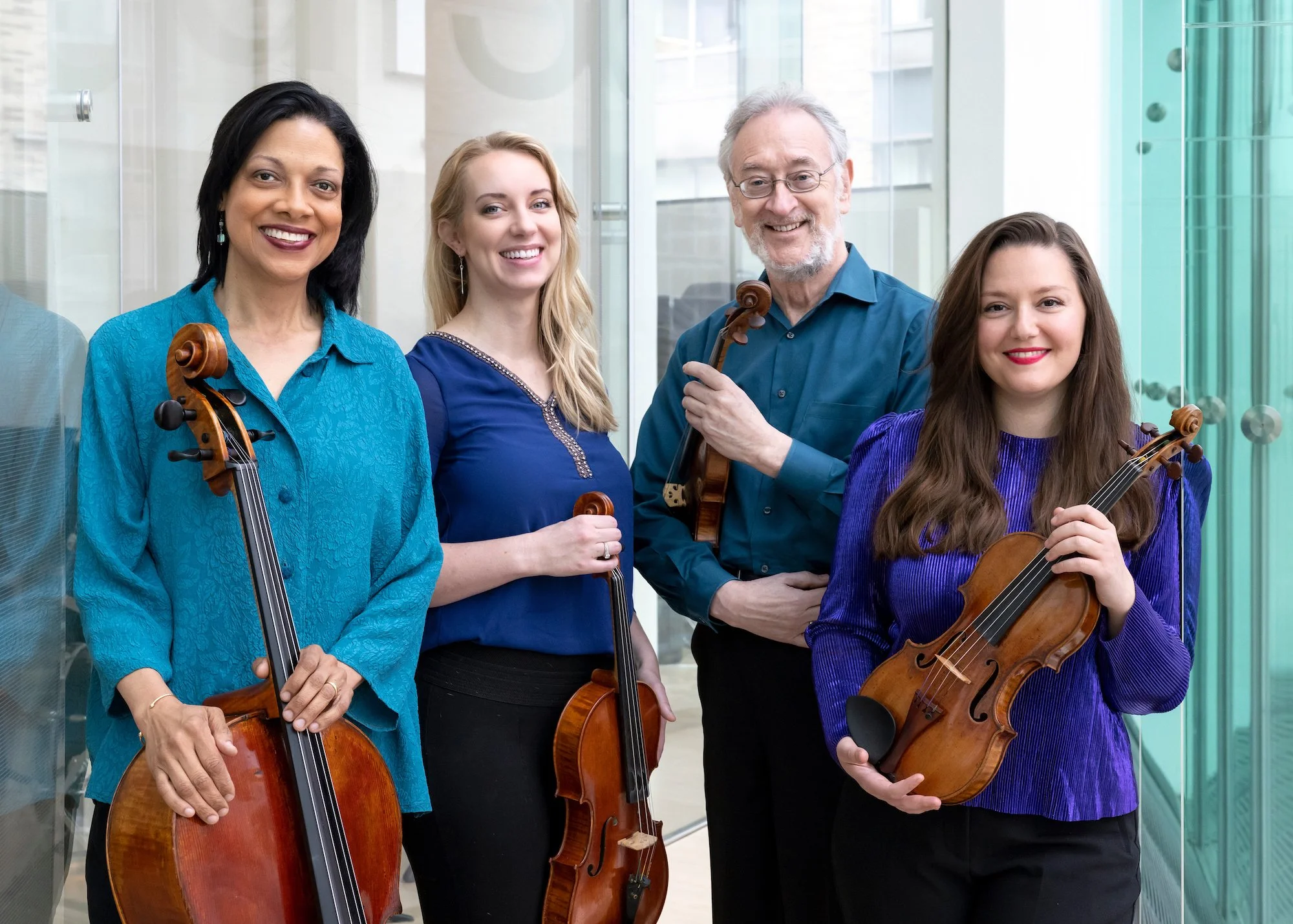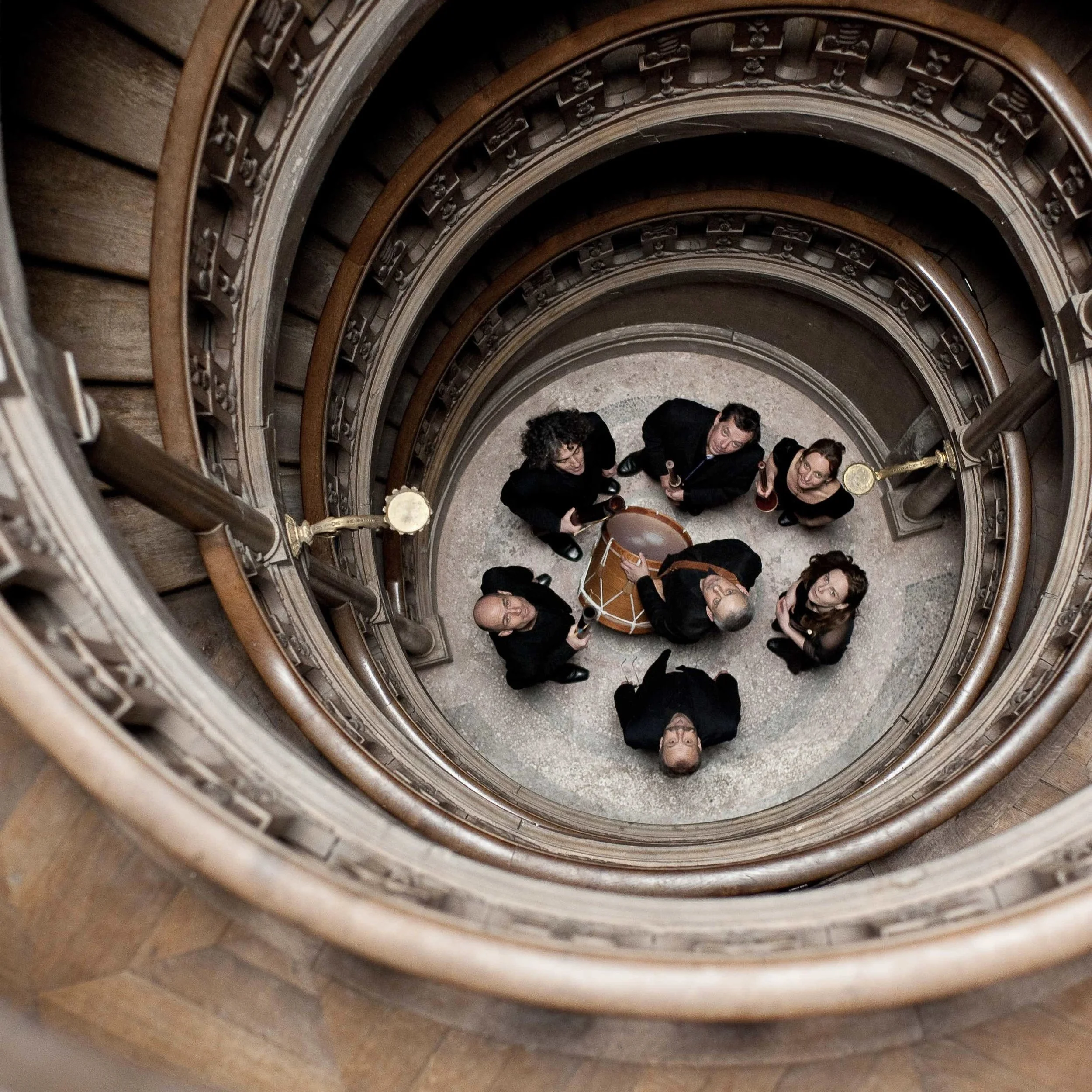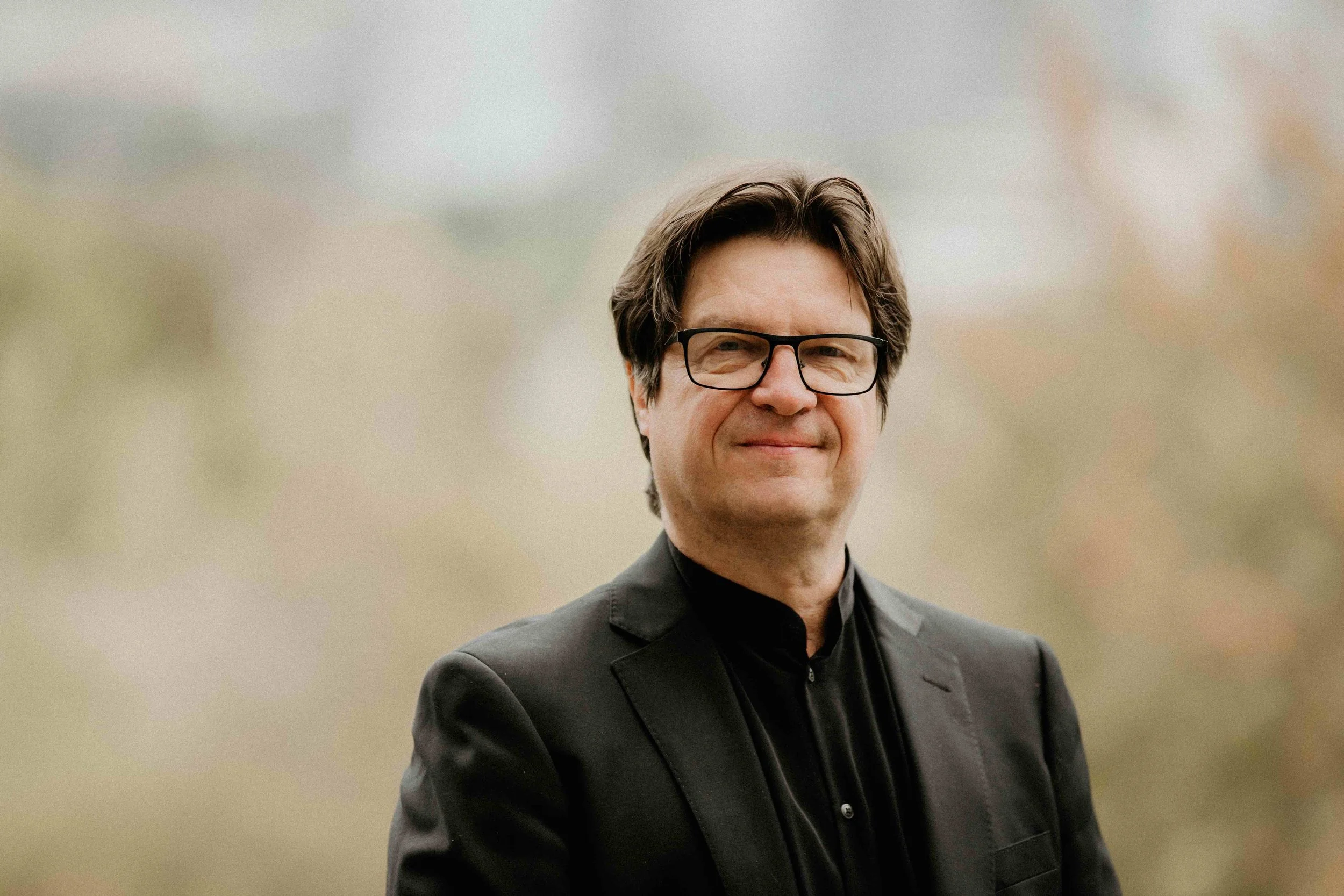Focused on authenticity, Juilliard String Quartet comes to Vancouver
Quirkiness and emotion characterize the venerated ensemble’s concert program, with epic works by Beethoven and Widmann
Juilliard String Quartet. Photo by Erin Baiano
Friends of Chamber Music presents The Juilliard String Quartet on November 22 at 7:30 pm at the Vancouver Playhouse
YOU COULD SAY that violist Molly Carr is under just a little bit of pressure as the newest member of Juilliard String Quartet. After all, the ensemble celebrating its 75th anniversary this year is, according to The Boston Globe, “the most important American quartet in history”.
Mind you, the recitalist, chamber musician, and educator has been described as “one of the most interesting interpreters of the viola today” (Codalario Spain), praised for performances that are “intoxicating” (The New York Times) and “ravishing” (The Strad). Carr has been recognized at the United Nations for her work with refugees and honoured for her work in prisons as the founding director of Project: Music Heals Us, a non-profit that brings free chamber music performances to marginalized populations with limited access to the arts.
Carr’s fellow JSQ musicians—violinist Areta Zhulla, violinist Ronald Copes, and cellist Astrid Schween—have a stunning list of accolades each their own. In stepping into her new role, Carr tries not to focus on the sky-high level of expectations associated with it.
“I think one thing that has been in the DNA of the Juilliard String Quartet for 75 years is this commitment to the integrity of music making,” Carr says in a phone interview with Stir, connecting from a studio alongside her fellow musicians. “When someone says these crazy words—‘the best in the world’—if we were to spend time thinking about them, you sort of have panic attacks, but they go away, they’re not so relevant when we’re doing what we love and spending every day together pursuing that.
“When they called me and asked me if I wanted to come and play with them, I was screaming, dancing, and jumping up and down,” she says. “This is the dream. This is what I want to do for the rest of my life.”
Formed in 1944, Juilliard String Quartet is about to visit Vancouver courtesy Friends of Chamber Music, which is also celebrating its 75th anniversary this year. The ensemble will play two pieces by Ludwig van Beethoven and two by Jörg Widmann, an illustration of the way JSQ honours with the classics while also embracing new works.
Joining JSQ means much more than performing in hallowed venues around the globe and adding to its acclaimed discography. (The quartet’s recordings of the Bartók and Schoenberg Quartets, have won Grammy awards, as have those of Debussy, Ravel, and Beethoven.) The group is string quartet in residence at the Juilliard School, and its four members are all in-demand instructors in the string and chamber music faculties. Each spring, the musicians host the internationally recognized Juilliard String Quartet Seminar, while summertime involves working on repertoire with Fellows at the Tanglewood Music Center.
Carr joined the classical music ensemble—the first to receive a lifetime achievement award from the National Academy of Recording Arts and Sciences in 2011—earlier this year, following the death of its beloved violist Roger Tapping.
Copes, meanwhile, has been with the quartet for 25 years. What makes Juilliard String Quartet so special, he says, is its members’ commitment to authenticity. “If we approach the learning of music and the sharing of the music that we play with all of our intelligence, all of our intuition, and all of our feeling and emotion intact, then it will have an authenticity,” Copes says. “And actually for me, it’s so much easier to do it that way than to approach half-heartedly or for the wrong reasons.
“And we get to share that with people,” he says. “It’s that act of literally sharing some of the most amazing works of human imagination ever… We’re very lucky.”
Zhulla joined JSQ in 2018. “My first year in the group, it felt like my knowledge was accelerated—I was in a Tesla,” she says with a laugh. “But the most important thing was still to be truthful and to be honest with your music and to speak that as clearly as possible.”
Carr adds: “In my personal experience of playing for inmates, playing for refugees, and playing for people who have never heard classical music before, every single time when the music is played with…full commitment, full wholeheartedness, there is always a response,” she says. “There’s always a very emotional, sometimes viscerally felt, response.
“I think one thing about this quartet is that the conversation in rehearsal is never about this articulation versus that one; it’s about the ‘why’, the emotional why,” she says. “With every phrase, there’s emotional content to it. With this ensemble, it’s such a primary focus, and that is an arrow to the target for audiences. It’s a human, emotional experience.”
Juilliard String Quartet’s Vancouver program takes a deep dive into Beethoven’s String Quartet No.13 in B-flat Major, Opus 130, which, with its published finale, opens the concert. The performance closes with the master’s Grosse Fugue, Opus 133—which is the movement that Beethoven originally wanted his 13th string quartet to end with but which his publisher rejected. In between are two pieces that the quartet commissioned of Widmann: String Quartet No. 8, Study on Beethoven III and Cavatina—String Quartet No.10, Study on Beethoven V.
“Both [Widmann] quartets are inspired by different parts of Opus 130,” Copes says.
Even after their 100th rehearsal of the Cavatina, Schween says the musicians are just as enthralled with it as ever. “The power of this music is so fabulous,” says Schween, who joined the ensemble in 2016. “It just remains an intoxicatingly very special magical atmosphere. We can rehearse the ending over and over and it’s still there: it has so much power within.
Schween describes the Widmann pieces as “crazy—wonderfully crazy”. “They show a great love and respect for Beethoven but also a kind of awe for how outrageous Beethoven must have been,” she says. “And he had a big sense of humour.”
Copes notes: “It’s a program of quirkiness all the way through. Beethoven is certainly quirky. Widmann takes the quirk and extends it and has fun with it all the way through.”
Fun, to be sure, but the works are also complex individually and especially demanding when combined in a concert. “There’s almost no measure in the program which is steady, in which the tempo is not accelerating or getting slower, so there’s this constant sense of ebb and flow that is sometimes quite extreme,” Copes says. “Putting that feeling in in exactly the same way as a group is extremely challenging.”
Schween points out that as JSQ evolves, the artists carry those who came before them. “Our dear friend and former colleague Roger Capping was very instrumental in helping to organize these commissions,” Schween says. “We think of him throughout the whole preparation and performance process, and how much fun he would be having at our joy with these pieces.”














